type
status
slug
summary
tags
category
icon
password
ID
date
Author
URL
In China, there is a word called "Shenzhen speed", which is used to describe the enthusiasm and efficiency of Shenzhen people.
You can often see foreigners asking which big city in China is better on Reddit or Facebook, but not everyone can get a proper answer.
City is a very complex and comprehensive concept, and it is unrealistic to compare it comprehensively and objectively with a few simple sentences. In this article, we focus on the points that people are most concerned about-mainly some subjective feelings, combined with some objective data.
We can’t talk about all the cities that people are interested in. In this article, we will first talk about the five cities that have been asked by the most people, they are:
Beijing, Shanghai, Guangzhou, Shenzhen and Chengdu.
Is it easy to find a job?
Before we talk about specific industries, let’s take a look at the overall level of economic development. In terms of GDP scale, according to China’s National Bureau of Statistics, the GDP levels of the five cities in 2018 are as follows:
Shanghai: GDP 3601.182 billion yuan, per capita GDP 148,744 yuan.
Beijing: GDP 3310.597 billion yuan, per capita GDP 153,095 yuan.
Shenzhen: GDP 2422.198 billion yuan, per capita GDP 189,568 yuan.
Guangzhou: GDP 2285.935 million yuan, per capita GDP 155,491 yuan.
Chengdu: GDP 1534.277 billion yuan, per capita GDP 76,960 yuan (unlike the other four, this per capita GDP is 2016).
It is obvious that there is a big gap between Chengdu and the other four cities in terms of the level of economic development alone. This is not surprising. Although Chengdu has attracted the attention of Chinese wage earners in recent years, it is only a new big city, and there are still many gaps in its development-of course, it can be said that it has great potential.
On the other hand, Shenzhen’s per capita GDP is very outstanding. But don’t rush to judge. Shenzhen has its own problems.
You can’t talk about work without industry. Like several neighbors in East Asia, China’s high-paying jobs and emerging industries are mainly concentrated in a few big cities. Considering that not all industries are of interest to everyone, we choose some representative industries to say.
You are reading Panda!Yoo
A blog about modern Chinese culture and consumption trends. If you are interested in Chinese food, drinks, games, movies, novels, dramas, please follow us.
Join 1,565 other subscribers
Shenzhen has an absolute leading position in the telecommunications industry. If you are a telecom engineer, it is right to choose Shenzhen. Shanghai, which relies on the industrial clusters of the Yangtze River Delta, and Guangzhou, which relies on the industrial clusters of the Pearl River Delta, are also in the lead in China. The telecommunications industry in Sichuan Province is also relatively developed, so Chengdu also has a certain strength. In this respect, Beijing is relatively poor.
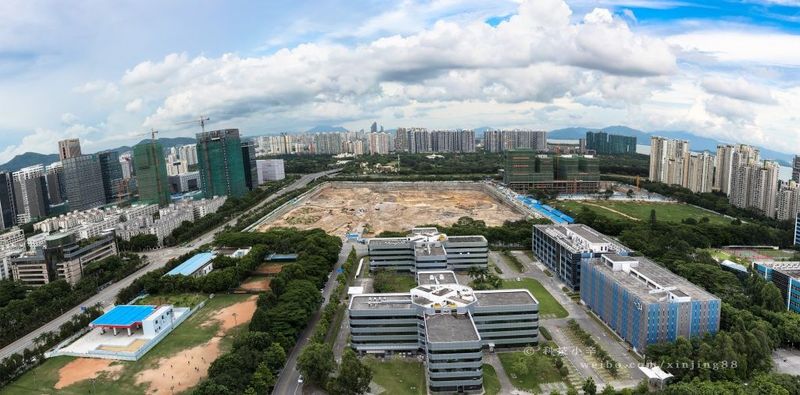
The famous “Huawei” park in Shenzhen
In terms of software and information technology, Beijing, Shanghai, Shenzhen and Chengdu are all outstanding, while Shenzhen is particularly dynamic. But on the whole, with the exception of Guangzhou, software and information technology jobs are easier to find in the other four cities.
The media industry, no matter text, audio-visual or film and television, is only more developed in China’s traditional big cities, that is, Beijing, Shanghai and Guangzhou. In this regard, Shenzhen and Chengdu are still relatively backward, and there are not many opportunities at present.
In the service industry, in the financial direction, Beijing, Shanghai and Shenzhen are key areas; in the direction of business conferences and exhibitions, these five cities have their own unique regional advantages; in terms of logistics, Shanghai and the Yangtze River Delta where Shanghai is located have formed a dominant position over the whole country.
In terms of medicine, beyond the imagination of many people, these five big cities are not very prominent. China’s pharmaceutical industry is not very dependent on the development of super-large cities.
In terms of small commodities, similar to logistics, Shanghai and the Yangtze River Delta are significantly better than anywhere else.
However, considering that many foreigners come to China to engage in foreign language teaching, Beijing and Shanghai are actually the best choices. The level of education industry in Shenzhen and Chengdu is obviously different from that in Beijing and Shanghai. Although Guangzhou is an old first-tier city, Cantonese are famous for doing business and pay relatively less attention to the education industry, so there is a large gap between Guangzhou and Beijing and Shanghai.
Resources and population?
Whether a city is comfortable or not has something to do with its population-in China, a populous country, too much population will obviously make the city more crowded. According to China’s National Bureau of Statistics, let’s take a look at the population of these cities in 2018:
Shenzhen: 4.547 million people, covering an area of 1997.47 square kilometers.
Guangzhou: 9.2769 million people, covering an area of 7434 square kilometers.
Beijing: 13.758 million people, covering an area of 16410.54 square kilometers.
Shanghai: 14.6238 million people, covering an area of 6340.5 square kilometers.
Chengdu: 16.0447 million people (unlike the other four, this population is 2017), covering an area of 14335 square kilometers.
Note that the urban area is only a reference, and there is no point in calculating the per capita area. Because the scope of the central area of the city is not equal to the whole urban area, for example, although Beijing has a large area, the central urban area is still very crowded, while Chengdu has the largest population, but it does not give people the feeling of being very crowded.
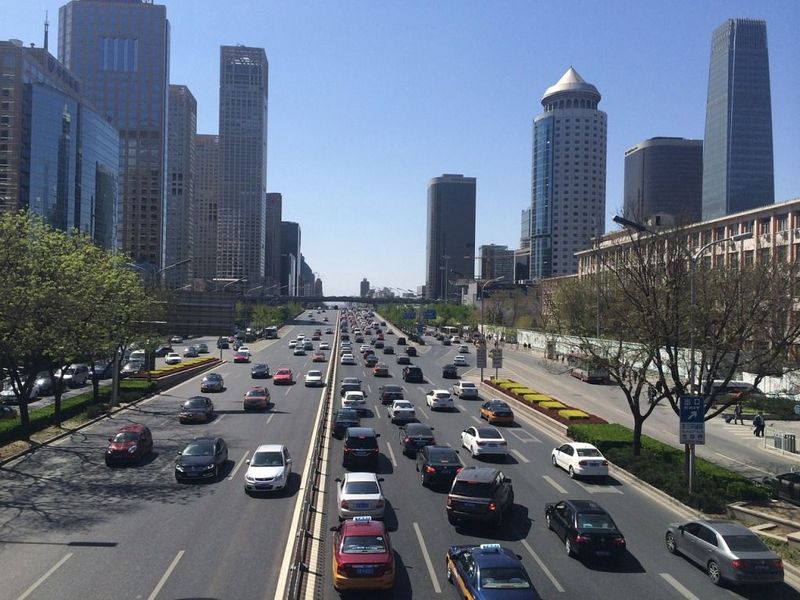
In terms of subjective feelings, I think Beijing and Shanghai have the most serious “big city disease”, such as high rent, traffic jams, long queues and so on. On the other hand, the residents of Chengdu are least troubled by the population, and they all feel more comfortable in life and work.
What’s the climate like?
The issue of climate is also very complicated, but according to the Chinese, China’s climate can be most simply summarized into two types: the northern climate and the southern climate.
Obviously, among the above-mentioned cities, Beijing is a very typical northern city. Beijing is a typical city with temperate monsoon climate. It is hot and rainy in summer and cold and dry in winter. But this does not mean that the four seasons in Beijing are particularly distinct. For example, Beijingers often laugh at themselves that “Beijing’s spring is too short.” this is largely because Beijing’s spring does not have particularly prominent spring scenery and feelings. The climate of most cities in northern China is similar to that of Beijing. Such climatic characteristics are called “north” by the Chinese.
Other cities basically belong to southern cities, in which Shanghai and Guangzhou belong to subtropical monsoon climate, Chengdu belongs to subtropical monsoon humid climate, and Shenzhen belongs to subtropical to tropical transitional marine climate.
Compared with Beijing, Shanghai is milder and wetter all year round and is not as dry as Beijing in winter. But wetness is not always a good thing. For example, at the turn of spring and summer in Shanghai, there is a lot of light rain, which will make many northern residents feel uncomfortable.
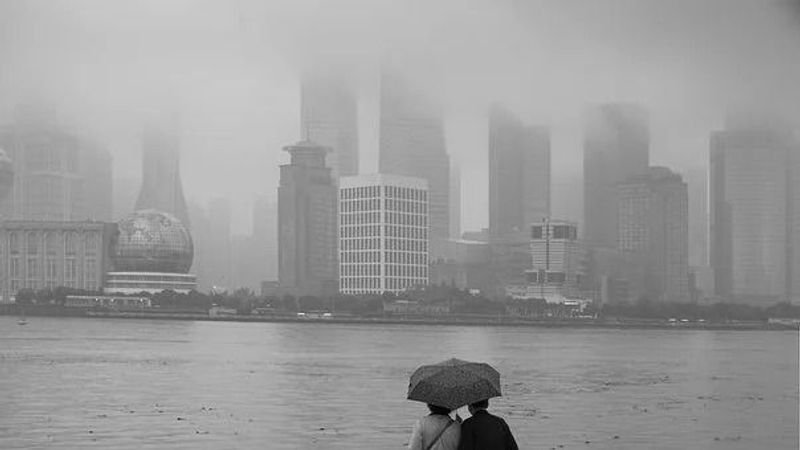
The characteristic of Chengdu is that compared with Beijing, the temperature in summer is not very high, and the temperature in winter is not very low. However, the summer in Chengdu is particularly muggy, and the winter is also particularly cold, because the weather in Chengdu is too humid. The phenomenon of cloud and fog in Chengdu is very serious, and the sunshine time is relatively short. There is an idiom in China called “Sichuan dogs barking at the sun”, which means that there are too many cloudy and foggy days in Sichuan Province, and dogs feel fresh when they occasionally see the sun.
Guangzhou and Shenzhen are generally warm and rainy, with plenty of light and heat, long summer and short frost period. In particular, it is worth mentioning that due to the low latitudes of Guangzhou and Shenzhen, the winter is actually very warm, similar to or even higher than the spring and autumn temperatures in Beijing.
Having said so much, do you feel as a whole that “Beijing is too cold”? Wrong! Because Beijing is the only “northern city” of the above-mentioned cities, with collective heating provided by the state in the cold winter, although it is cold outside, it is very warm indoors-even warmer than several southern cities. So don’t worry that winter in Beijing makes you shiver. As long as you stay indoors, you won’t be affected by the cold.
How’s your diet?
In terms of diet, if you mainly consider daily diet, rather than extremely expensive restaurants or special food, then Guangzhou will give you the best experience. Guangzhou is known as the gourmet capital in China, with a wide variety of civilian food at an appropriate price. More importantly, due to the large number of Cantonese living abroad in Chinese history, many foreigners, especially North Americans, have eaten “Chinese food” in their hometown based on Cantonese food and will be more familiar and friendly in taste.
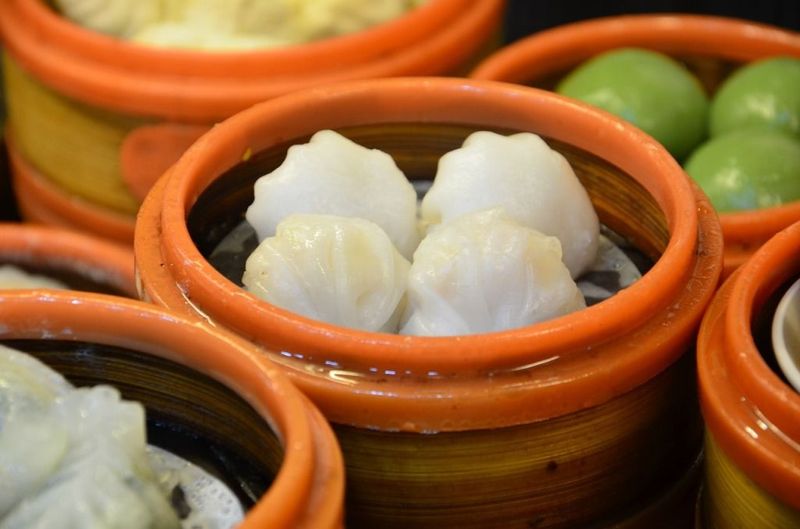
Similar to Guangzhou, Chengdu is also a famous gourmet city in the eyes of the Chinese people, characterized by the quality and cheapness of civilian food. But for foreigners, the food experience in Chengdu will be much worse than that in Guangzhou. This is not only because most foreigners are not familiar with the flavor of Chengdu, but also because a large number of “Sichuan cuisine” in Chengdu are heavily seasoned and use more chili peppers, which may make people who are afraid of spicy food feel uncomfortable.
Beijing is almost the opposite of Guangzhou and Chengdu. Although the civilian diet in Beijing is very distinctive, it is not very popular in the whole of China. In addition, the quality of inexpensive restaurants in Beijing is also uneven. If you don’t have local friends to lead you, it may be difficult to find a very good ordinary restaurant. But if you don’t care about the price, you don’t need to worry about it as long as you are willing to spend money, Beijing has a variety of expensive but excellent restaurants and a variety of foods across the globe. But on the whole, if you are just an ordinary wage earner, the eating experience in Beijing may be poor.
Shanghai is a typical international metropolis. Although Shanghai lacks historical details in terms of local cuisine, a wide variety of international cuisine in Shanghai has become the main theme of the city’s catering. In addition, on the whole, the inexpensive restaurants in Shanghai are much better in Beijing, while the high-priced restaurants are not inferior to Beijing. If you don’t specifically consider Chinese local food, Shanghai is your best choice in terms of diet, and the whole of China will not find a second mature international metropolis like Shanghai.
Shenzhen is obviously a lot worse in terms of diet. Lack of local characteristics of diet, the overall industrial and commercial environment is not as mature as Shanghai. Although Shenzhen’s economy is very developed, there is also a lack of high-priced high-quality restaurants like Beijing and Shanghai. If you like delicious food, you’d better not settle in Shenzhen.
How was your night life?
Nightlife is a very subjective problem. On the whole, from the Chinese point of view, the nightlife in Shanghai and Chengdu is very rich, the entertainment venues are diverse, and the prices of bars are very cheap. Among them, because the pace of life in Chengdu is relatively more leisurely, locals pay more attention to the quality of life, nightlife is particularly interesting. It is worth noting that although there is a large gap between the economic development level of Chengdu and the first-tier cities, the large shopping malls in Chengdu are very developed and are not inferior to Beijing and Shanghai. Therefore, if you go shopping in Chengdu, you will be very happy.
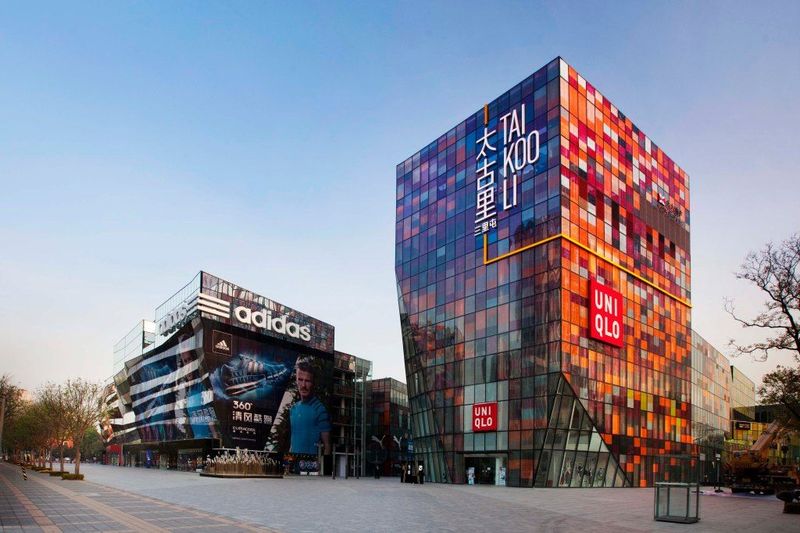
Sanlitun has the most international shopping malls, restaurants and entertainment in Beijing.
But this is just how the Chinese feel. If you are a foreigner, you may think that the nightlife in Beijing is also very good. Because Beijing has a large number of embassies and consulates and places where foreigners live, such as Wudaokou and Sanlitun. Many bars, western restaurants and dance halls in Beijing have been used to serving foreign customers for decades, and you can still find more “strangers” in these places. Since you don’t plan to spend the night in Beijingers’ own place of entertainment, you don’t need to know that nightlife in Beijing is actually quite poor, do you?
Are you in a hurry?
The pace of development in Beijing, Shanghai and Shenzhen is very fast, and the pace of life and work is also very fast, which is often uncomfortable. Among them, the pace of Shenzhen is particularly fast. In China, there is a word called “Shenzhen speed”, which is used to describe the enthusiasm and efficiency of Shenzhen people. In fact, if you pay attention to the changes in Shenzhen from the 1980s to the present, you can definitely feel the “Shenzhen speed” with the naked eye. If you are not a workaholic, Shenzhen may be less attractive to you.
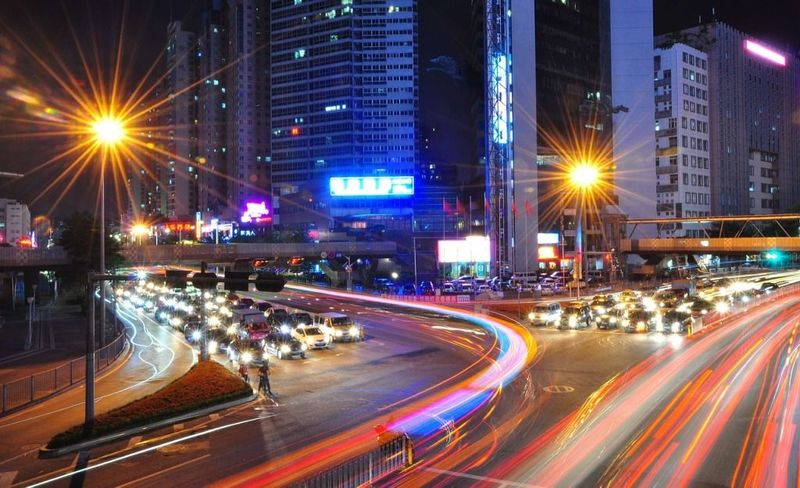
Although Guangzhou and Chengdu are fast-paced compared to other parts of China, there is still some leisurely space on the whole. Some people in Guangzhou have the habit of “morning tea”. They start drinking tea while enjoying refreshments in the morning and spend the whole morning and even noon leisurely. People in Chengdu are more used to chatting and playing mahjong in the afternoon and evening. In the busy urban life, the people of Chengdu may attach the most importance to the “quality of life”.
- Author:NotionNext
- URL:https://pandayoo.com/2020/12/08/talk-about-the-differences-in-life-experiences-in-several-big-cities-in-china
- Copyright:All articles in this blog, except for special statements, adopt BY-NC-SA agreement. Please indicate the source!